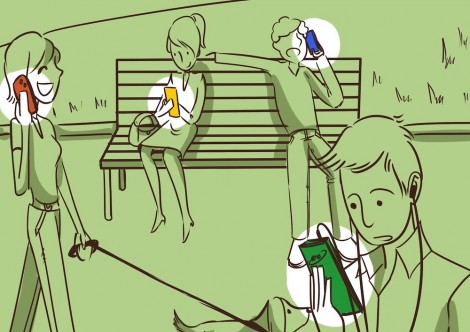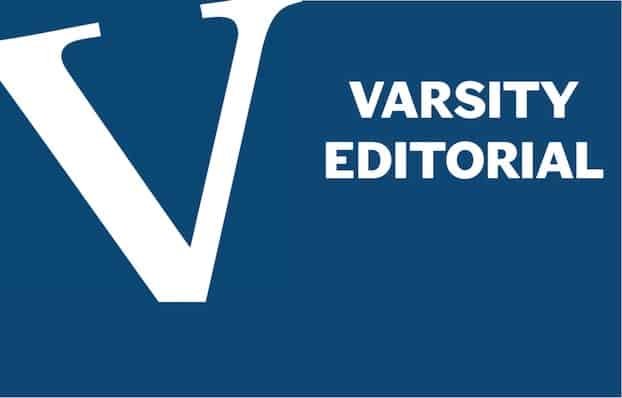An open letter written last month by U of T post-doctoral fellow Christopher Parsons focused on the current state of Internet privacy and government surveillance in Canada. Parsons’ letter emphasized the importance of this issue to our local community at U of T.

NANCY JI/THE VARSITY
The letter, which was sent to each of the country’s major phone and internet service providers (ISPs) — including Bell Canada, Telus, as well as Rogers and its subsidiary Fido — requests that the companies publicize the extent to which they provide customer information to intelligence and law enforcement agencies.
In the post-Snowden era of Internet privacy, Parsons and others are continuing the often difficult and unpopular work of pulling back the veil of government surveillance. Students across the country, continent, and indeed, the world, are aware of the new status quo, but may not have considered the full privacy implications of increased access to information online. It is, unfortunately, easy to ignore the droning of television anchors or the frequently updated headlines of news sources as they appear on Facebook and Twitter, especially when the medium lends itself to distraction. The irony, of course, is that as these stories appear, they are swiftly buried under an infinite stream of online information.
Last month, The Varsity published a comment piece about the administrative backdoors of Blackboard Portal, U of T’s ubiquitous online class organization service. The article noted that the online learning tool allows course administrators to see how often students in their courses access readings, the syllabus, and other materials; this effectively allows professors to keep tabs on students’ engagement without their knowledge. It is unclear how many U of T professors use the website for that purpose, nor is this aspect of Blackboard a secret. Nevertheless, many if not most U of T students don’t know that their habits can be monitored in this way. This is an example of the relatively superficial understanding most people have of their own online presence.
Canada’s government is also implicated in the surge of revelations relating to Internet and wireless communication privacy over the past year. Our own federal government has been tied to international spying efforts, as well as the sharing of metadata with foreign agencies through the Communications Security Establishment Canada — our equivalent of the American National Security Agency. It remains uncertain how much work has gone into building a national surveillance infrastructure similar to that of the United States, but what is certain is that our government — and by extension, the governments of other countries — have some access to Canadians’ online activity.
It is encouraging to see that Canadians like U of T’s Christopher Parsons are using legitimate channels to combat unjustified surveillance in Canada. Whether or not our elected government should be given the power to keep track of our movements and online presence is a valid and pertinent question. Those who suggest that these stories are harmless — or that they are the product of the natural progression of security in the information age should not pacify us, just as those who cry foul and indulge in Orwellian conspiracy theories should not panic us. Setting the boundaries of privacy, particularly online, is a defining issue for our generation. The precedents we set today will be hugely influential. How our society debates and implements Internet privacy mechanisms now will undoubtedly have lasting effects for the future, as the scope of the Internet continues to expand. It is imperative that young people educate themselves on this process, while also being wary of what they are willing to share online. A vast network of complicated communications hides behind the familiar graphic interfaces of our mobile messengers, our Facebook profiles, our email, and so on.
True power lies in citizenship. Whether or not our personal information is being used for good or bad, it is ours, and we have a right to hold those who would take it from us to account. The work already being done by concerned members of the U of T community should act as a model for those with their own concerns. It is crucial that these decisions be made in the light of day, and any efforts to pull them into the spotlight — and to inform more people — are positive. The waters remain murky, but it is only by wading in that we can start to judge their depth.


